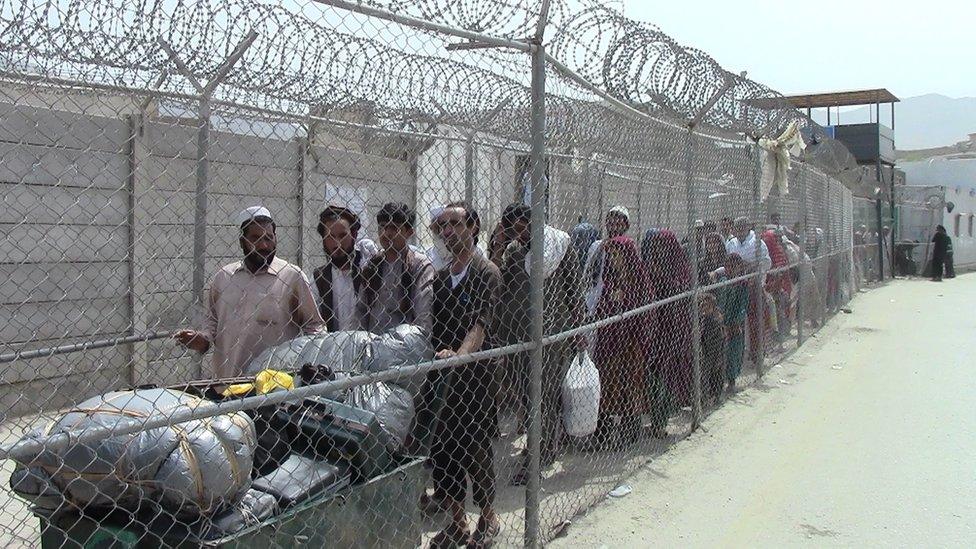Viewpoint: Why Afghan refugees are facing a humanitarian catastrophe
- Published
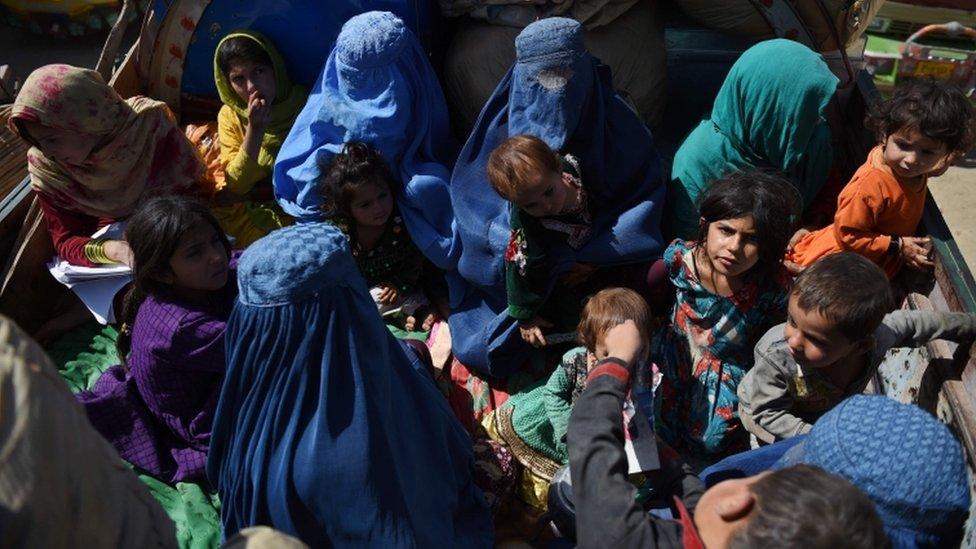
Afghan refugee families are returning home after being repatriated from Pakistan
Hundreds of thousands of Afghan refugees in Europe, Pakistan and Iran are being forced to return home to Afghanistan by the European Union, UN agencies and governments in the region.
An unprecedented humanitarian crisis is likely to be the result as the refugees - many of them destitute - return to what is effectively a countrywide war zone, with the Taliban attacking half a dozen provinces.
Moreover, the country's severe winter months are approaching, when essential supplies are even harder to obtain. The government in Kabul does not have the resources to help these refugees or resettle them as it focuses on the war, defending major cities and paying for the army's upkeep.
At a conference in Brussels on 5 October, 70 international donors, including the European Union, pledged $15.2bn (£12.3bn) for Afghanistan's development budget until 2020. Funding for the Afghan military - some $5bn a year - will follow separately.
However, alongside that generosity was a deal in which Afghanistan had to accept the return of over 200,000 Afghan refugees who flooded into Europe last year - part of the one million migrants who arrived in Europe, with Syrians being the highest in number.
The EU is likely to accept many Syrian refugees because it considers Syria a war zone, but the EU does not consider Afghanistan as a war zone even though the country is torn apart by war.
Previous definitions by the EU that Kabul and provincial capitals are safe havens no longer hold true with half a dozen provincial capitals under siege by the Taliban.
The EU will go to the extent of building a new terminal at Kabul airport to accommodate the arriving refugees. Yet Federica Mogherini, the EU foreign policy chief, rejected reports that EU aid to Afghanistan was conditional on the Kabul government accepting back these refugees.
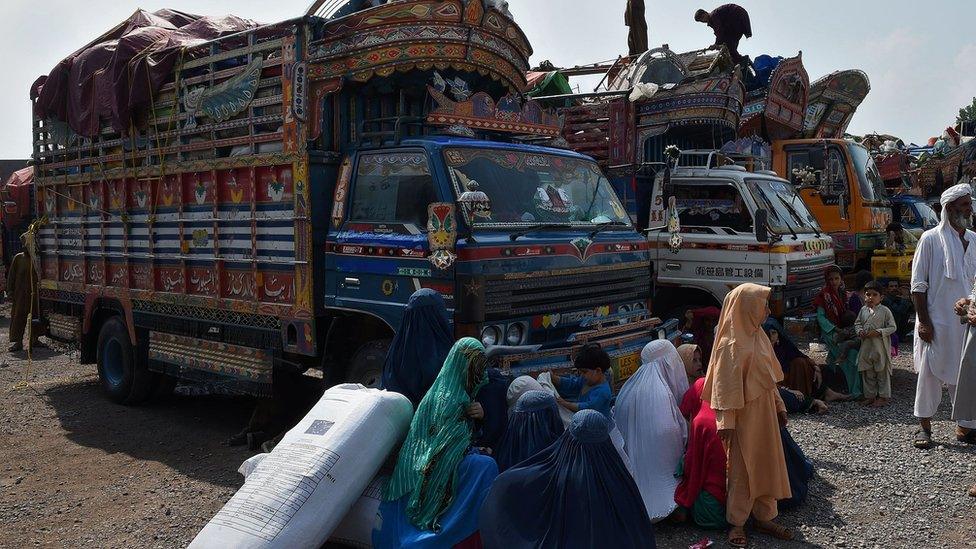
There were more than 200 lorries stuck on the road to the repatriation centre
Similarly, Pakistan plans to repatriate 1.6 million registered and another one million unregistered Afghan refugees - many of whom have been living in Pakistan since the 1979 Soviet invasion of Afghanistan.
So far this year, some 200,000 Afghans have already been forced to pack up and leave with 98,000 refugees returning in September alone, according to the UN High Commissioner for Refugees (UNHCR).
Islamabad has given a March 2017 deadline by when all refugees will have to leave. The Pakistan military has blamed Afghan refugees for taking part in acts of terrorism in Pakistan although most suspects captured and shown in the media are Pakistani citizens.
Without any declaration, the government has geared up its bureaucracy and police to hound out Afghans and send them packing. The UNHCR is providing $400 for each registered refugee as a going-home package.
Iran, with one million refugees on its soil, is persuading some Afghans to return, even as it recruits Afghan Hazaras who are Shia Muslims to fight for the Syrian regime. Afghans in Iran are, thus, being used as cannon fodder for the wars in the Middle East. They easily succumb because their futures are uncertain and they lack resources and jobs while Iran promises them Iranian citizenship.
Adding to the tragedy is the massive exodus of Afghans from their cities as the Taliban attack them. At least 24,000 people have fled Kunduz in the north since 3 October when the Taliban attacked the city for the second time in a year. Tens of thousands of Afghans have fled Tarin Kot, Pul-e-Khumri, Lashkar Gah and Farah, provincial capitals which are also under attack by the Taliban.
As a result of continuous war in the past 15 years, there are already some 300,000 internally displaced Afghans - those who have moved away from their homes and are living as refugees inside the country.
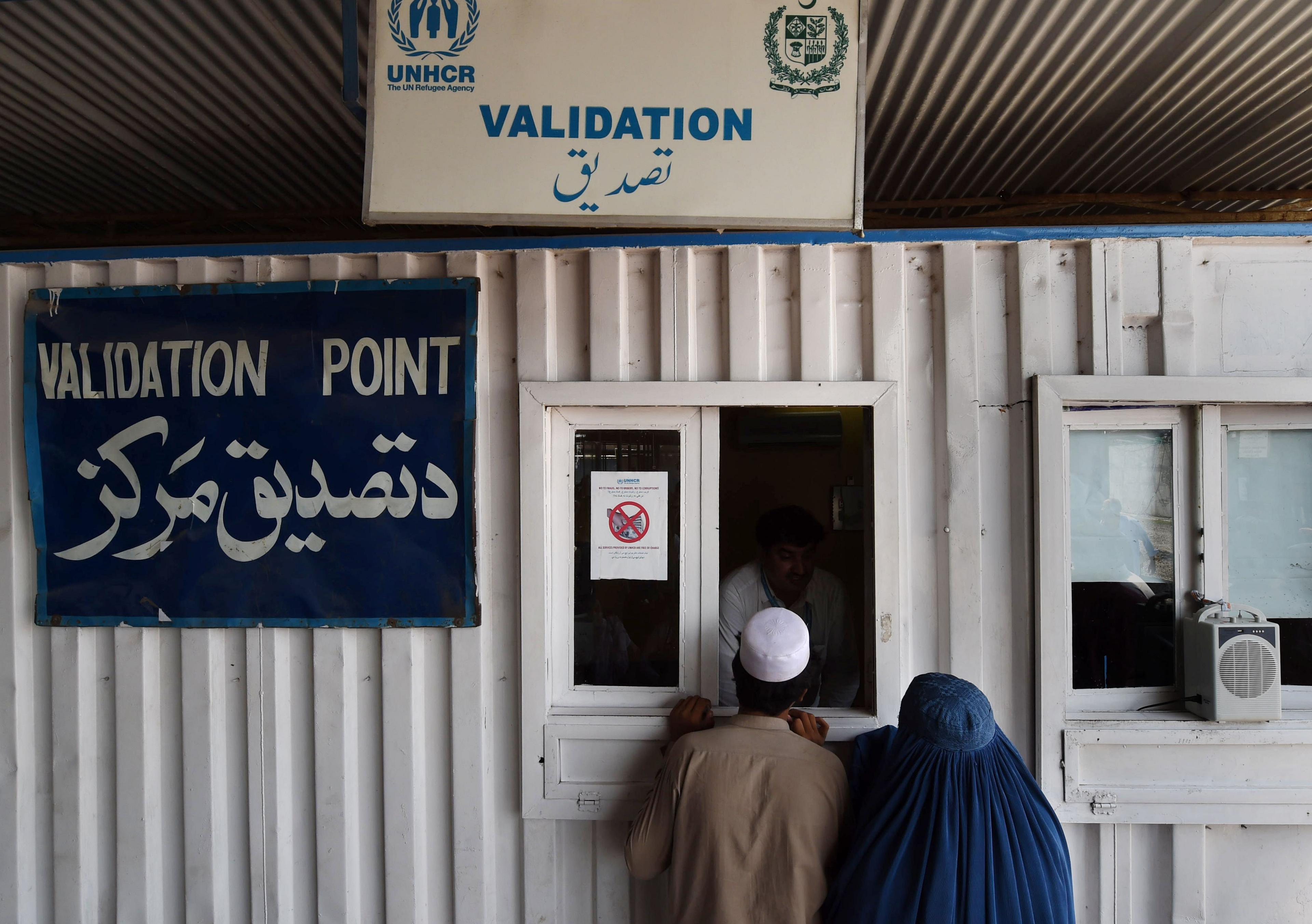
Afghan refugees in Pakistan register with the United Nations High Commissioner for Refugees (UNHCR) repatriation centre as they prepare to return to their home country
Many refugees are destitute, but others are used to living with housing, electricity and schools for their children - all of which will be unavailable when they return to Afghan cities. Many will migrate to Kabul, which is already over-populated with a fragile infrastructure that cannot cope with new arrivals.
In a few weeks, the refugees will be facing the harsh Afghan winter for which most refugees are not equipped while food, clean water and other facilities will be harder to acquire. A man-made humanitarian catastrophe could be the end result of these governmental policies.
What is even more disheartening is that no government, aid agency or any other group is trying to find a more equitable solution to the problem of Afghan refugees.
In the midst of war and poverty, nobody is speaking up for Afghans as they face even greater hardship and tragedy.

Ahmed Rashid
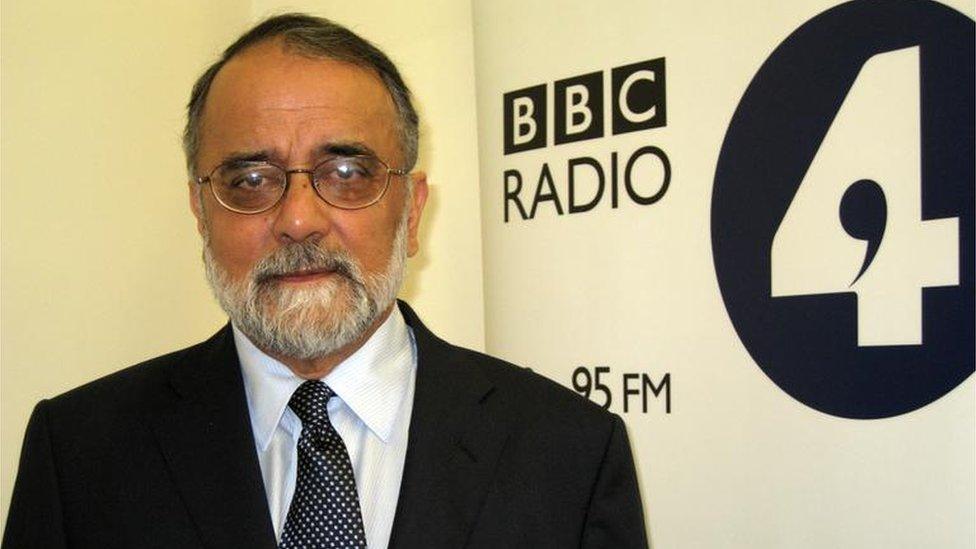
Ahmed Rashid is a Pakistani journalist and author based in Lahore
His latest book is Pakistan on the Brink - The Future of America, Pakistan and Afghanistan
Earlier works include Descent into Chaos and Taliban, first published in 2000, which became a bestseller

- Published28 August 2016
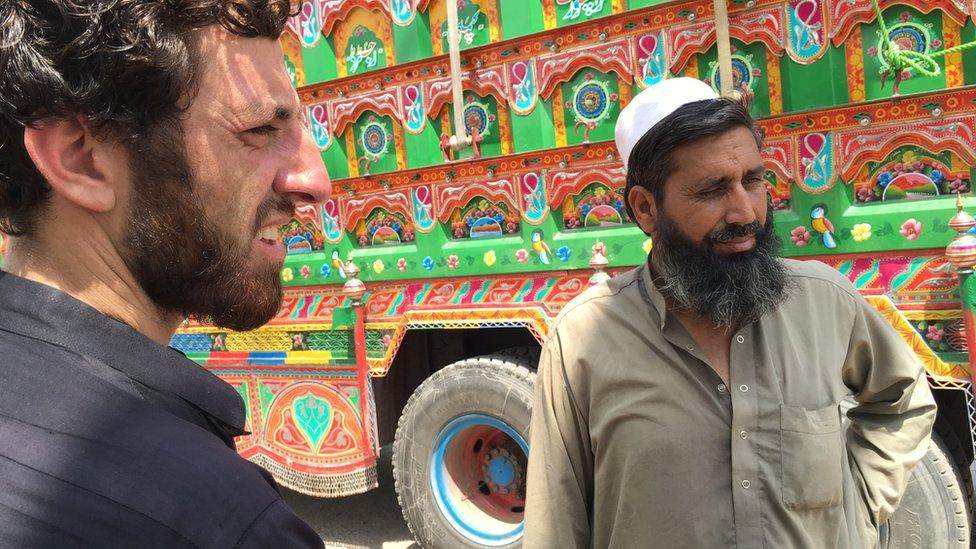
- Published2 June 2016
